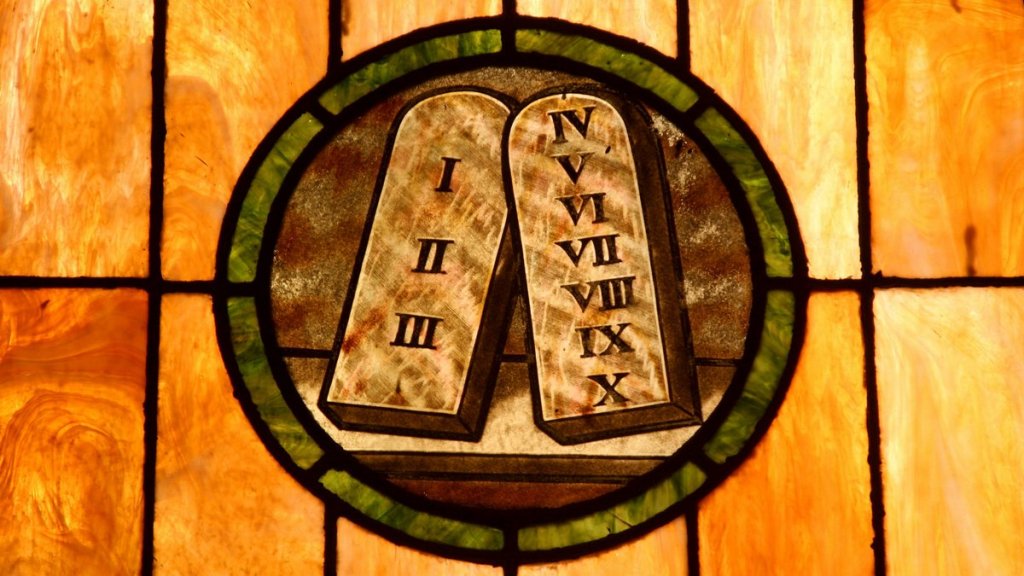The Life Transforming Power of Being Willing To Face Truth
The Life Transforming Power of Being Willing To Face Truth
The Life Transforming Power of Being Willing To Face Truth
The Life Transforming Power of Being Willing To Face Truth
The Life Transforming Power of Being Willing To Face Truth
862. The Law Abolished – Final Thoughts (Really)




861. The Law Abolished – Wrapping up Final Thoughts (Or Not)




860. The Law Abolished (and Gentiles Were Never Under It)
Doers of the Law Will be Justified?
Was the Apostle Paul confused when he wrote Romans 2:13? Because this verse doesn’t seem to belong in the Bible:
For it is not the hearers of the law who are just before God, but the doers of the Law will be justified. (Romans 2:13)
Doers of the law will be justified?!
Was Paul having a senior moment? Did he forget to insert the word NOT?
There is an easy explanation for this strange verse, which we’ll get to in a minute. But first, let’s be clear: we are justified by faith alone and NOT by keeping the law.
Since we have been justified by faith, we have peace with God through our Lord Jesus Christ. (Romans 5:1)
Justification by faith is one of the great themes of Paul’s writing. Again and again, he reminds us that we are justified or made right with God through faith in his Son (Rom. 3:28, Gal. 3:24).
Since we are justified by faith, and the law is not of faith (Gal. 3:12), no one can ever be justified by keeping the law.
By the works of the Law no flesh will be justified in his sight. (Romans 3:20)
And one more time for emphasis:
We know that a person is not justified by works of the law but through faith in Jesus Christ. (Galatians 2:16)
Paul could not be any clearer. We’re justified by faith not law. Try to impress God with your law-keeping, and you’ll fall from grace and cut yourself off from Christ:
You have been severed from Christ, you who are seeking to be justified by law; you have fallen from grace. (Galatians 5:4)
So with such a clear message (faith, not law), why does Paul say doers of the law will be justified?
Doers of the law
Paul was not saying, “Try and keep the law and you will justify yourself before God,” for that would contradict what he says elsewhere about being justified by faith.
He was saying, “hearing the law is not enough, you have to keep it – and none of you can!”
In context, Paul was speaking to people who knew the law (Rom. 7:1). Like many believers, they had been raised on a diet of rules. They thought if they heard the rules, studied the rules, and hung them on their walls, God would be impressed.
Nope.
Going to church and hearing the rules is not enough.
Teaching the rules and condemning those who break them is not enough.
Lobbying for God’s law to be hung on courthouses is not enough.
You have to keep all the rules and no one can.
It is impossible for imperfect man to deliver a lifetime of perfect performance. Paul is not calling us to attempt the impossible; he’s trying to get us to admit defeat.
Doers of the law will be justified, but you are not and never can be a doer of the law.
There was only one Doer of the law who was made right with God and that Doer offers you his righteousness as a free gift.
So then, the law was our guardian until Christ came, in order that we might be justified by faith. (Galatians 3:24)
To be justified means God has judged you righteous and not guilty of sin. To be justified is to be made right with God.
You cannot earn the gift of righteousness and you cannot justify yourself before God. The only thing you can do is receive his righteousness by faith.
Want to get right with God?
Start by thanking him for Jesus who was made sin so that you might be justified and made righteous (2 Cor. 5:21).
You are not justified or made right with God because of anything you do, but because of everything he has done.
—–
Want to learn more about justification, righteousness, and the law? Check out our ever-expanding Grace Glossary.
Read more articles and these frequently-asked questions about the law.
859. The Law Abolished – Nailed to the Cross
858. The Law Abolished – The Seed Came and Broke Down the Wall




- « Previous Page
- 1
- …
- 50
- 51
- 52
- 53
- 54
- …
- 157
- Next Page »





